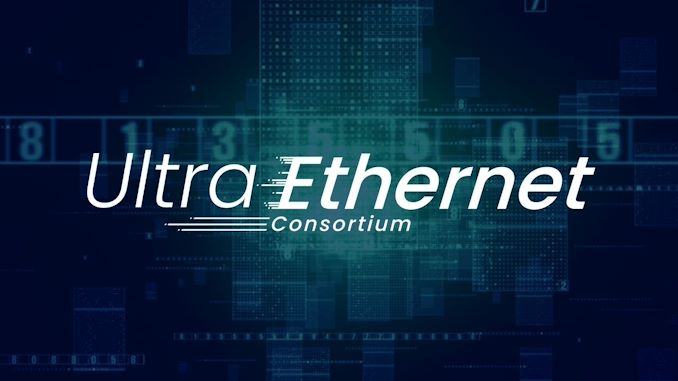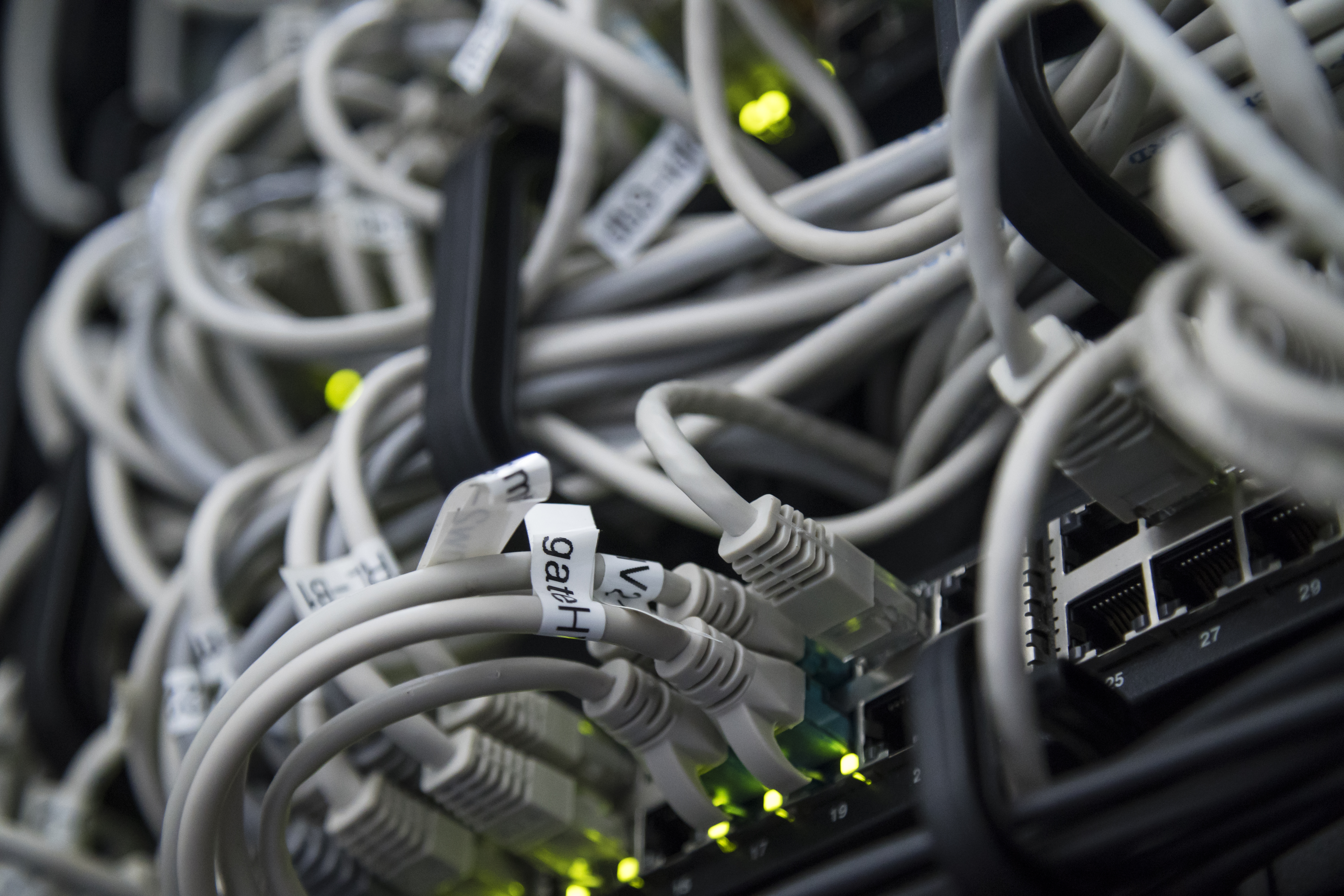Ultra Ethernet Consortium expands to 55 members

The Ultra Ethernet Consortium (UEC) has announced this week that the Next Generation Interconnect Collaboration Forum has grown to 55 members. And as the group works to develop the initial version of its ultra-fast Ethernet standard, it has released some of the first technical details about the upcoming standard.
Formed in the summer of 2023, the UEC aims to develop a new interconnect standard for AI and HPC data center needs, serving as an alternative to InfiniBand, which is currently under NVIDIA's main control. UEC started accepting new members back in November, and in just five months it gained 45 new members, underscoring massive interest in the new technology. The consortium now has 55 members and 715 industry professionals working across eight technical groups.

There is a lot of work ahead for UEC, as the group laid out in their latest development blog post, as the consortium works to build a unified Ethernet-based communications stack for high-performance networks that support artificial intelligence and high-performance computing clusters. The consortium's technical goals include developing specifications, APIs, and source code for Ultra Ethernet communications, updating existing protocols, and introducing new mechanisms for telemetry, signaling, security, and congestion management. In particular, Ultra Ethernet introduces UEC Transport (UET) for higher network utilization and lower tail latency to speed up Remote Direct Memory Access (RDMA) operations over Ethernet. Key features include multi-path packet spraying, flexible ordering and advanced congestion control to ensure efficient and reliable data transmission.
These improvements are designed to meet the needs of large AI and HPC clusters - with separate profiles for each type of deployment - although everything is done in a surgical way to improve the technology, but reuse as much of the existing Ethernet as possible to maintain cost efficiency and interoperability.
The consortium's founding members include AMD, Arista, Broadcom, Cisco, Eviden (an Atos company), HPE, Intel, Meta and Microsoft. After the Ultra Ethernet Consortium (UEC) began accepting new members in October 2023, numerous industry giants have joined the group, including Baidu, Dell, Huawei, IBM, Nokia, Lenovo, Supermicro and Tencent.

The consortium currently plans to publicly release the initial 1.0 version of the UEC specification sometime in the third quarter of 2024.
“There was always a recognition that UEC was meeting a need in the industry,” said J Metz, Chair of the UEC Steering Committee. "There is a strong desire to have an open, accessible, Ethernet-based network specifically designed to meet AI and HPC workload requirements. This level of involvement is encouraging; it helps us achieve the goal of broad interoperability and stability."
While it's clear that the Ultra Ethernet Consortium is gaining support across the industry, it's still unclear where other industry giants like AWS and Google stand. While the hardware companies involved can design Ultra Ethernet support into their hardware and systems, the technology ultimately exists to serve large data center and HPC system operators. So it will be interesting to see what interest they show (and how quickly they adopt) the fledgling Ethernet backbone technology as the hardware for it begins to approach.
Latest network
-
22 Marnetwork
-
26 Jannetwork
MSI WiFi 6E USB-adapter
-
16 Decnetwork
Wi-Fi 7 soon ready for rollout
-
23 Junnetwork
ASUS RT-AX59U
-
26 Aprnetwork
Netgear Nighthawk M6 Pro - MR6450 mobil router
-
09 Marnetwork
ASUS ROG Rapture GT6
-
31 Marnetwork
What is Mesh? - Everything You Need to Know
-
30 Marnetwork
The 3 Most Important Facts about Wi-Fi 6
Most read network
Latest network
-
22 Marnetwork
Ultra Ethernet Consortium expands to 55 members
-
26 Jannetwork
MSI WiFi 6E USB-adapter
-
16 Decnetwork
Wi-Fi 7 soon ready for rollout
-
23 Junnetwork
ASUS RT-AX59U
-
26 Aprnetwork
Netgear Nighthawk M6 Pro - MR6450 mobil router
-
09 Marnetwork
ASUS ROG Rapture GT6
-
31 Marnetwork
What is Mesh? - Everything You Need to Know
-
30 Marnetwork
The 3 Most Important Facts about Wi-Fi 6






